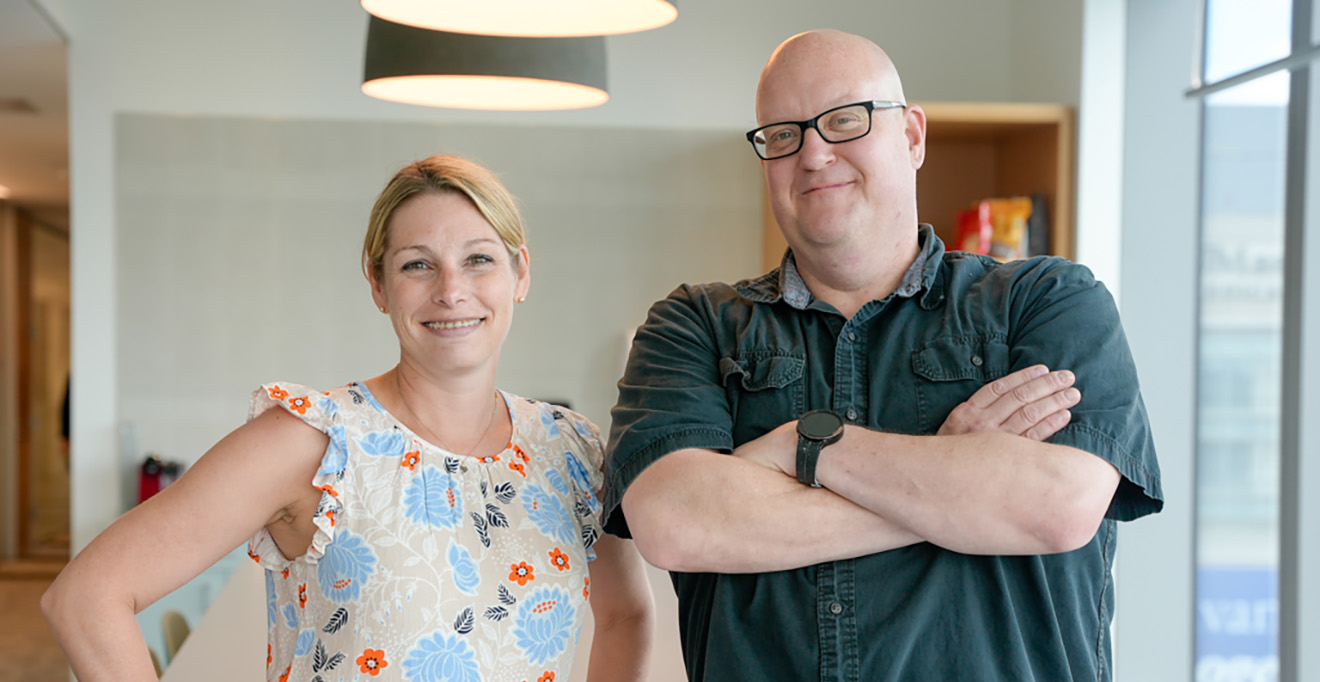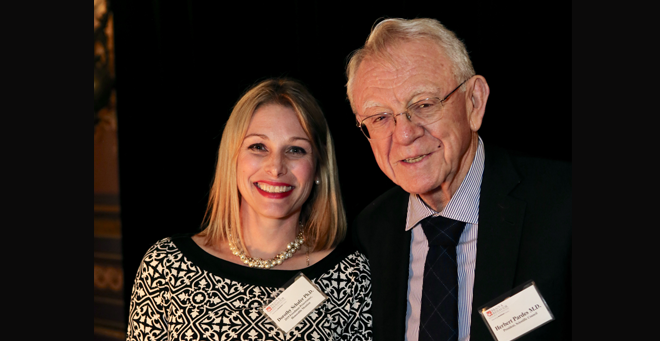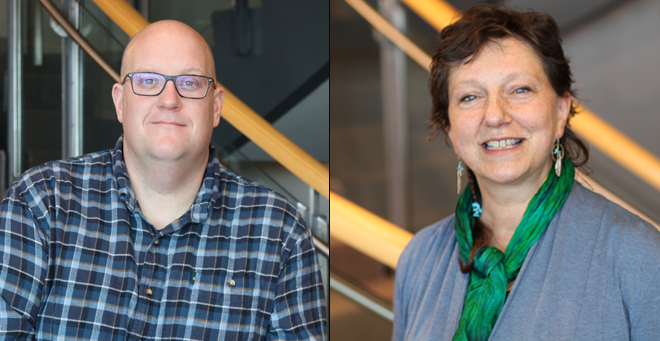
Photo: Hallie Leo
Two UMass Chan Medical School scientists are sharing an award of $50,000 to support groundbreaking, interdisciplinary research in neuroscience.
The award was presented to Dorothy Schafer, PhD, the Molly McGovern Chair in Biomedical Research and associate professor of neurobiology; and Travis Thomson, PhD, assistant professor of neurobiology, for their project, Investigating a novel liver-brain axis driven by extracellular vesicles.
The award is possible thanks to the Dan and Diane Riccio Fund for Neuroscience, which was established in 2017 with a $1 million donation from the Riccio family. In 2022, the Riccio family donated an additional $15 million to UMass Chan, with $5 million of that sum given to expand and endow the Dan and Diane Riccio Fund for Neuroscience.
“The Riccios have been extremely generous over the years, and their generosity has really helped trainees, helped PIs get an exciting new project off the ground, and helped collaborations get started. Their generosity—what they’re doing for science—is huge,” Dr. Schafer said.
“Receiving this award speaks a lot toward how UMass Chan supports research in a time of need,” Dr. Thomson said.
Schafer and Thomson’s collaborative research is focused on studying communication between the brain and organs, notably the liver, using extracellular vesicles, which transfer RNA and proteins between cells. The research team did an experiment in which they labeled vesicles with proteins in the liver and then gave the liver an inflammatory stimulus, resulting in vesicles from the liver and produced by liver cells, ending up in the brain, specifically in the hypothalamus, a region at the base of the brain that controls sleep, appetite, blood pressure, body temperature, mood and sex drive.
“We’re exploring whether the extracellular vesicles could potentially be used for organ status monitored by the brain in a way other than nerves,” Schafer said, adding that they’re considering also studying how organs communicate with the brain in response to a tumor or a high fat diet. “We’d like to use this award as a springboard to expand past the liver and beyond inflammation and look at organ-wide communication with the brain.”
“The exciting thing about this is that the liver might be communicating to the brain, and it’s a non-cell, autonomous way of communication. Something happens, maybe the liver gets damaged, and those extracellular vesicles are released to the brain and could change behaviors processes in the brain. It’s like the liver is controlling the nervous system and taking action from a distance,” Thomson said.
The Riccio Fund award is also partially funding two trainees—Julen Goicolea-Egia, PhD, a postdoc in the Schafer lab; and Peter M’Angale PhD, instructor in neurobiology—who are assisting in the collaborative research.


